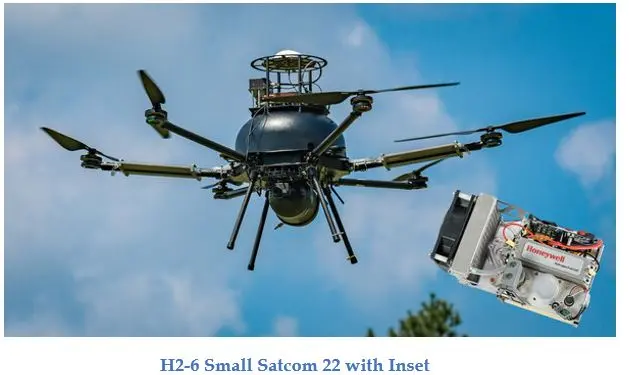

Honeywell announced that it has partnered with the U.S. Department of Energy's (DOE's) National Renewable Energy Laboratory (NREL) on a year-long collaboration to prototype and support the commercialization of a cartridge-based hydrogen fuel storage solution for Uncrewed Aerial Vehicles (UAVs).

Honeywell will provide technological expertise, testing for fuel cartridge technology, supply chain support, prototyping, and fuel cell evaluation to qualify for the "Fuel Additives for Solid Hydrogen (FLASH) Carriers in Electric Aviation" project.
The FLASH project will mature a new hydrogen carrier technology developed at NREL as part of the HyMARC (Hydrogen Materials Advanced Research Consortium) project. The program is funded by a partnership of the DOE's Hydrogen and Fuel Cell Technologies Office, NREL, and Honeywell.
Electric UAVs are seeing rapid adoption in industrial applications such as surveying, infrastructure inspection and security. Many of these applications previously required inefficient ground-based vehicles or hazardous use of piloted helicopters.
For short-range applications, UAVs have the potential to offer greater efficiency, reliability and precision compared with conventional combustion-driven aircraft. For long-range and heavy-payload applications, however, battery-powered electric UAVs today fall short. The NREL and Honeywell collaboration seeks to prove that hydrogen can help address these longer-duration, high-payload challenges.
The FLASH project seeks to deliver an alternative approach in which efficient and long-lasting hydrogen storage is coupled to a fuel cell that converts hydrogen to electricity to power electric UAV flight. The resulting system will enable long-range flights, but without the noise and tail-pipe emissions of combustion engines. It will also enable sensitive drone applications like atmospheric monitoring, where exhaust gases and rumbling engines would reduce performance.
The FLASH project is focused on a solid material that can rapidly release hydrogen gas for use by the fuel cell. The material has a high hydrogen capacity and can operate at low temperatures (approximately 100°C). This class of materials is highly versatile to industrial hydrogen delivery requirements.

